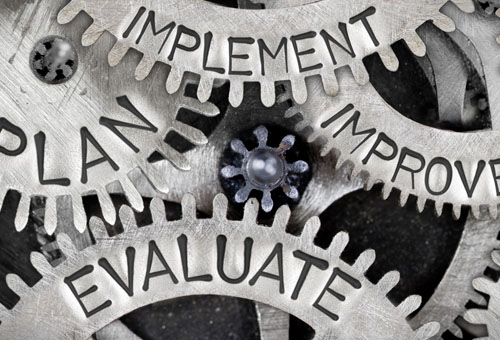


Examine an array of resources and strategies that will support all stages of successful project planning, development, and sustainability. Identify problems, analyze change conditions, and build a plan to use resource strategies that are relevant to your community project. Explore the six-step process as a guide for successful completion of project goals, deliverables, and overall implementation. Participants will participate in team building exercises to increase knowledge about program sustainability and resource utilization.

Examine the soft skills necessary to engage your community members and facilitate impactful discussions about criminal justice related topics. Review common practices and techniques that will improve community education campaigns, programmatic outreach activities, and group facilitation, including leading a successful MDT/CCR. Discover strategies on how to tailor presentations to audience needs, keep people engaged, and use technology as an effective learning strategy.

Learn about repeated trauma and its impact on emotional intelligence and leadership. The focus will be on practical applications and the importance of creating a climate of physical, emotional and relational safety. Attendees will explore their current strengths and challenges, how cultural wisdom enhances their Emotional Intelligence, and an understanding of repeated trauma and the impact of repeated trauma on development and coping. The program supports victim service providers to not only increase their awareness but also explore their behavior at each level of system: to engage with clients differently, to engage with each other differently, and to understand that the organization and community as a whole is part of the healing interventions.

Organizations should routinely assess their capacity to serve their community and fulfill the stated mission. In this training, define the evaluation process and review the tools that help determine the impact you have within your community. Review best practices for documenting the impact of program services that achieve grant deliverables, strengthen future funding opportunities, and build new programs that assist your community. Emphasize continuous improvement processes that build accountability, prioritize problem-solving strategies, and align measurable outcomes with organizational strengths.

Learn how tribal courts can develop integrated Domestic Violence Courts to adjudicate all aspects of cases involving Domestic Violence including protection orders, violation of those orders, child custody and visitation, property issues and other aspects to avoid conflicting orders and ensure victim safety.

This webinar will provide an introduction to multidisciplinary teams in Indian Country with a focus on child protection and serving victims of crime.

A comprehensive strategic planning process designed to meet the needs of your tribal program. Instructors will engage your local team in defining roles and responsibilities, identifying strengths and weaknesses, and developing critical mission and vision statements. Consider and integrate data collection methods into an action plan and create measurable goals/objectives to overcome barriers. This training and technical assistance class will produce a final strategic action plan that will guide your project over the next 3-5 years.

Discuss how policies and procedures can help promote consistency in services, orient new personnel, establish connections between departments, and reaffirm multidisciplinary and victim-centered approaches. Learn more about the importance of identifying a vision, mission and purpose statement for your organization.

Gather best practices for developing a comprehensive table of contents, tracking changes and amendments to policies, visual aids and charts, and other documentation. Reduce legal liability by learning about disclaimers, avoiding discriminatory language , and verifying content. Explore the process to introduce and implement formal policies, orient staff, and educate the community to prevent resistance and gain acceptance of implementation. Prepare for future changes and evaluation.

Gain an introduction to various approaches relevant to the development and implementation of departmental policy, identification and inclusion of key stakeholders, gathering community feedback, and planning time and tasks. Utilize mind mapping exercises to develop vision, mission, purpose, and key policy inclusions. Learn about researching policies and identifying resources to support policy development. Explore the importance of words, terminology and phrases in your communications, as well as visualizations such as flowcharts to reinforce policy narratives and process summaries.
